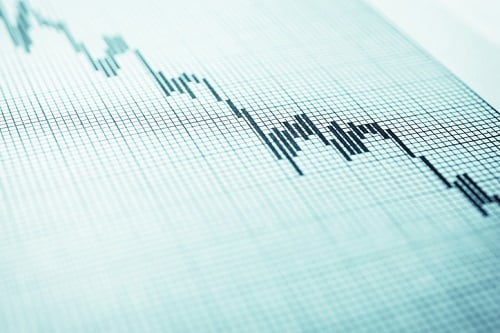Don't expect equilibrium between economic uncertainty and stock-market headiness to be anything close to steady

The U.S. stock market may be at an all-time high, but if an index of economic uncertainty is any indication, investors shouldn’t be popping the champagne just yet.
The Economic Policy Uncertainty Index, formulated by finance professors from Northwestern University, Stanford, and the University of Chicago, is based on how frequently certain words and phrases associated with economic uncertainty are mentioned in major newspapers. As reported by the Wall Street Journal, the index spiked in April and May and has since moderated somewhat, but is still sitting at three times the average level it’s registered over recent decades.
Before 2020, the correlation between the EPU index and falls in the stock market has been strong. Based on the pattern that’s held since 1900, according to the Journal, the S&P 500 is around 20% higher than where it should be given the apparent economic uncertainty.
As explained by Nicholas Bloom, one of the professors behind the index, economic uncertainty curtails economic growth by raising the cost of capital for businesses, making both businesses and consumers less motivated to spend, and dulling the impact of government stimulus programs.
Having said that, the U.S. federal government has unleashed a breathtaking barrage of fiscal and monetary stimulus this year. The generally accepted assumption is that a significant amount of that stimulus has been instrumental in propping up prices in the financial markets.
But the government’s salvo of support doesn’t resolve the tug-of-war between economic uncertainty and stock-market highs. The shaky equilibrium has to give, one way or the other.
One possible scenario would involve a marked decline in uncertainty. The “Roaring ‘20s scenario,” as it’s referred to by StoneX head of global macro strategy Vincent Deluard, would come about if and when effective vaccines are made widely available, the pandemic ends, and the economy recovers swiftly – analogous to the comeback that occurred following World War I and the Spanish flu outbreak of the previous century.
But the latest Survey of Business Uncertainty, conducted in November 2020 after the vaccine results from Pfizer, Moderna, and BioNTech SE were announced, indicated that business owners’ uncertainty about sales over the coming 12 months is 70% above the average level that’s been established since the inception of the survey in 2016.
And even granting the possibility of economic uncertainty dropping significantly, the subsequent bounce in stock markets might not be so substantial since equities haven’t fallen as far as expected this year.
Deluard himself suggests the stock market could fall in a Roaring ‘20s scenario. As reported by the Journal, he said an economic boom would spark a rotation from growth to value stocks, similar to what happened in the 2000-02 bear market. While the average value stock rose during that time, the overall market – dominated by large-cap growth stocks – fell on average.



